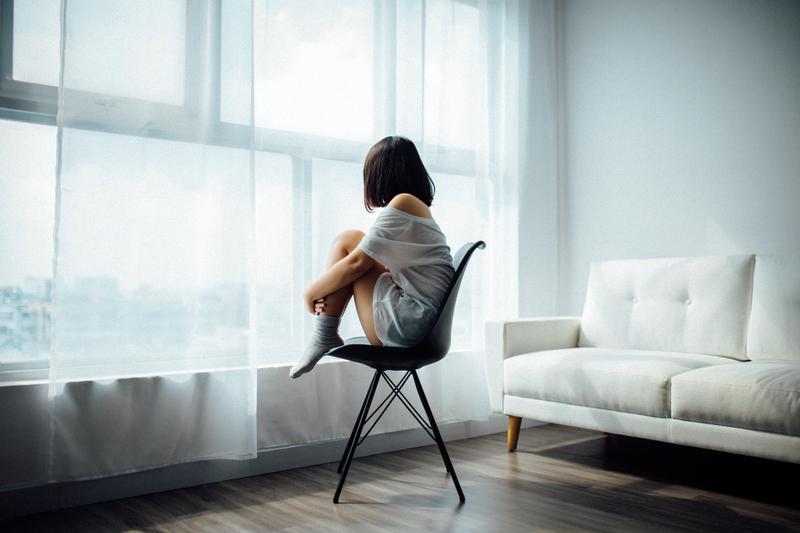How to Cope with Postpartum Depression
How to Cope with Postpartum Depression

Having a baby is a fulfilling experience for a woman. However, it is also at this point when many can suffer from elevated and ride to a roller coaster of emotions, such as joy, sadness, and fear.
If you’re a new mother, chances are you may be suffering from feelings of sadness that also started interfering with your daily functions and life. You are not alone, though, as about one in seven women develops postpartum depression (PPD) in the US alone.
Learn more about its symptoms and ways to deal with it in the following sections.
Symptoms and Detection
The symptoms of PPD usually start showing within a few weeks post-delivery. For some women, however, these can occur after six months.
A few of the symptoms can include difficulty making decisions or thinking, irritability and mood swings and trouble bonding with your little one. Other significant signs you’re having PPD are the following:
- Feeling trapped or overwhelmed that it is impossible to deal with
- Lots of crying
- Feeling guilty
- A low mood/energy lasting for at least a week
- The feeling of being rejected
- Blurred vision
- Stomachaches
- Lack of appetite
- Persistent fatigue
- Trouble focusing
- Low motivation
- Panic attacks
- Unexplained lack of interest in the baby
- Loss of libido
- Lack of desire to stay in touch with friends
- Troubled sleeping
- Feeling of inadequacy
- Lack of interest in yourself
Some women who have PPD may also have thoughts about hurting the baby, doing self-harm or committing suicide.
While neither the baby nor the parent is harmed in the process, these thoughts are distressing and frightening.
However, take note that the condition should not be mistaken for baby blues that affect parents during the first few days post-delivery.
The problem is that women who have PPD don’t tell about it to their family, friends and even to their partners.
Consulting your doctor is the most effective way to diagnose and treat PPD so that he/she can evaluate your unique symptoms and then create the right treatment plan for you.
Diagnosis
To diagnose PPD, the doctor will have to figure out signs, such as anxiety, sleeping problems, and trouble concentrating. The doctor will also have to conduct a comprehensive depression screening.
Your healthcare provider may also ask if you have been feeling hopeless, depressed or having a low mood during the past month as well as if you’re still finding pleasure in usual activities that make you happy.
Treatment Methods
PPD is treatable, and the following are the most popular treatment approaches used.
Psychotherapy
Also called talk therapy or mental health counseling, psychotherapy is one of the most effective ways of dealing with PPD. It involves setting manageable goals, discussing your feelings and concerns, and teaching you ways to respond to different situations positively.
Antidepressants and whole-plant medicine
Your doctor may prescribe antidepressants if you have a severe case of postpartum depression. These medications work by balancing the brain chemicals that affect mood.
They can help with hopelessness, irritability, trouble concentrating or sleeping and feeling of not being able to cope. However, the chemicals in these medications can pass onto your breast milk.
On the other hand is the use of whole-plant medicine, such as cannabis in the form of CBD oil that has been a promising new alternative treatment for PPD.
According to studies, it can work as an antidepressant. In fact, it may also work faster than mainstream antidepressants. It works by stimulating the production of chemicals deficient in PPD patients.
If you feel like you’re suffering from PPD, consult your doctor about it and ask if it is right for you. He/she can monitor your progress and find out if CBD will be interacting with any medications that you’re taking.
New activities - New you
In addition to antidepressants and whole-plant medicines, you can also try new activities.
And one of those is backyard landscaping that offers a host of benefits especially when it comes to de-stressing.
Stress can lead to headaches and irritability, two of the symptoms of PPD. You can help yourself prevent these problems with gardening and landscaping.
According to an experiment to find in the Journal of Health Psychology, test subjects that gardened were able to reduce their stress levels better than those who were assigned to a reading activity did.
More so, spending more time outdoors, specifically green time with plants and trees¸ you can increase your concentration levels.
A Harvard Medical School study even revealed that children with ADHD were able to focus better after being outside.
Nevertheless, you should definitely try new activities for a new you! Don’t forget including landscaping in your backyard because it is one of the best ways to defeat PPD and improve your physical and mental health as well.
There you have what to know about PPD symptoms and diagnosis as well as proven effective ways on how to overcome the condition. So if you’re experiencing PPD, tell your partner and loved ones about it, consult your doctor about the most appropriate treatment approach and do new activities especially landscaping in the backyard.
Be the first to post a message!